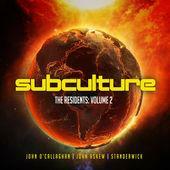WASHINGTON (Top40 Charts) Today, as part of GRAMMYs in My District, nearly 1,650 music makers will visit their local legislators office to discuss issues facing creators, in an annual advocacy event organized by The Recording Academy®. This grassroots advocacy initiative allows Recording Academy members to address important issues, including creators' rights, copyright review, and the impact of digital services on the music industry.
"For the first time in 40 years, Congress is considering major changes to the nation's copyright laws," said Daryl P. Friedman, The Recording Academy's Chief Industry, Government & Member Relations Officer. "Creators are currently operating in a patchwork system of outdated rules that inadvertently stifle innovation and discount creative labor. If Congress is going to fix music law, then it needs to be fixed in a way that is fair to all creators and complements the continuous evolution of music technology."
Meetings for this year's GRAMMYs in My District will take place in more than 330 congressional districts and include participants from various sectors of the music industry, including songwriters, producers, engineers, and performers. The key issues that will be discussed include:
H.R. 1733: The Fair Play Fair Pay Act of 2015 - The Fair Play Fair Pay Act addresses four previously separate parity issues within one encompassing piece of legislation. The bill would establish a process for setting fair-market royalty rates; create a performance right for artists on terrestrial radio; close the pre-1972 loophole to ensure that veteran performers receive royalties; and codify royalty payments to music producers for the first time.
H.R. 1457: The Allocation for
Music Producers Act - The AMP Act provides fairness for producers and engineers. Producers and engineers are an integral part of the creative process for a sound recording, yet despite their indispensable role in the creation, they have never been mentioned in any part of the copyright law. The AMP Act would codify into law the producer's right to collect the royalties they are due, and formalize SoundExchange's current voluntary policy.
Fairness for Songwriters - The Department of
Justice is reviewing decades-old consent decrees that prevent songwriters from receiving fair-market value for their work. The consent decrees need to be reformed to reflect the modern music marketplace. In addition, the Songwriter Equity Act (H.R. 1283/S. 662) would update other areas of the law so that songwriters can receive fair compensation.
This proposed legislation seeks to provide fair compensation across the music industry and bring music legislation into the modern age, addressing compensation from digital and streaming platforms as well as terrestrial radio. For more information about GRAMMYs in My District and the pending legislation, please visit www.grammy.com/action.
ABOUT THE RECORDING ACADEMY
Established in 1957, The Recording Academy is an organization of musicians, songwriters, producers, engineers, and recording professionals that is dedicated to improving the cultural condition and quality of life for music and its makers. Internationally known for the GRAMMY Awards® — the preeminent peer-recognized award for musical excellence and the most credible brand in music — The Recording Academy is responsible for groundbreaking professional development, cultural enrichment, advocacy, education, and human services programs. The Academy continues to focus on its mission of recognizing musical excellence, advocating for the well-being of music makers and ensuring music remains an indelible part of our culture. For more information about The Academy, please visit www.grammy.com. For breaking news and exclusive content, follow @TheGRAMMYs on Twitter; "like" The GRAMMYs on Facebook; and join The GRAMMYs' social communities on Google+, Instagram, Tumblr, and YouTube.
























